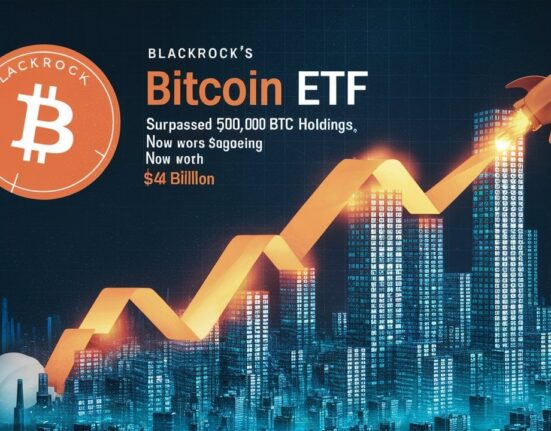Will Congress fix crypto regulation before it’s too late? Behnam says the lack of legal clarity leaves the CFTC “handcuffed” as the crypto market continues to evolve.
CFTC is “handcuffed”
U.S. Commodity Futures Trading Commission Chair Rostin Behnam is raising concerns, and it’s not just about the growing complexity of the crypto market.
Behnam, a longtime advocate for clearer rules in the digital asset space, is now urging Congress to address two critical issues: crypto regulation and election betting.
In recent remarks at a key industry meeting, Behnam irked that as technological disruption accelerates, the absence of clearer legal frameworks leaves regulators like the CFTC “handcuffed.”
Without action from Congress, the risks to both investors and the integrity of U.S. markets will continue to rise. But with an election year approaching and political obstacles mounting, will lawmakers act in time to close these gaps — or will we remain in the dark?
The unfinished business of crypto regulation
Behnam’s call for action on cryptocurrency isn’t new, but the stakes have never been higher. The quick ascent of digital assets, from Bitcoin (BTC) to decentralized finance, has left the regulatory framework struggling to catch up.
Several bills, like the Financial Innovation and Technology for the 21st Century Act, aim to provide some clarity, but they remain stuck in legislative limbo.
FIT 21, which passed the House of Representatives earlier this year, would grant the CFTC greater authority over “digital commodities” like Bitcoin. However, progress has yet to be made in the Senate.
FIT 21, for instance, proposes clearer tests to determine whether a digital asset is a commodity or a security, but it also raises new questions. How should regulators define decentralization?
More importantly, who gets to decide which assets are decentralized enough to be classified as commodities and which fall under securities laws?
And to top it all off, there is the pressing dilemma of over-interference by the U.S. Securities and Exchange Commission and its current chair, Gary Gensler, a known crypto critic, whose policies and administration are considered by many to have done more harm than good.
Hence, without a well-defined legal framework, the CFTC finds itself in a difficult position — able to enforce some rules but unable to fully protect investors.
This regulatory gap, Behnam argues, exposes markets to bad actors and discourages institutional investors from entering the space with confidence.
Behnam doesn’t expect Congress to take meaningful action this year due to the holidays and the urgency of passing a federal budget.
“I think as we look into 2025, with a new Congress and potentially a new president, you’re likely to see some legislation,” he noted.
Growing chaos of election betting
While the crypto market faces regulatory ambiguity, the rise of election betting platforms like Kalshi and Polymarket has thrown the CFTC into a legal battle it didn’t foresee.
Kalshi, a prediction market where users can bet on election outcomes, clashed with the CFTC when the agency deemed election contracts illegal, arguing that they could undermine public trust in democratic processes.
This wasn’t the first time the CFTC cracked down on such platforms. Polymarket, another prediction market built on the Polygon (POL) blockchain, was fined $1.4 million in 2022 for operating without proper regulatory compliance, forcing it to halt operations for U.S. residents.
The debate intensified when Kalshi sued the CFTC in 2023, resulting in a court ruling in favor of the platform in September 2024. The judge found that the CFTC had exceeded its statutory authority by blocking Kalshi’s election contracts.
The agency quickly appealed the decision, but Kalshi resumed bets on the 2024 U.S. presidential election. This has raised alarms, not only from regulators but also from prominent voices in the industry.
Billionaire investor Mark Cuban, a vocal critic of these platforms, expressed concerns that betting markets could be skewed by foreign influence or market manipulation. “These odds aren’t indicative of anything meaningful,” Cuban commented.
On the other hand, figures like Peter Thiel, the tech billionaire, have financially backed Polymarket, viewing it as a tool for harnessing market sentiment.
With billions of dollars flowing through these platforms during election cycles, Congress’s delayed action could make it harder to control prediction markets and protect the integrity of U.S. elections.
Betting markets thrive despite legal scrutiny and criticism
As the U.S. election cycle races to its conclusion in just two weeks, prediction markets like Kalshi and Polymarket are witnessing unprecedented activity despite ongoing legal battles and heavy criticism.
Kalshi, which launched its election prediction contracts in October after winning a court case against the CFTC, has gained some momentum.
The platform has attracted over $47 million in trading volume for its main U.S. election contract as of Oct. 22, a strong start for a platform that’s been in and out of courtrooms.
However, Kalshi’s volume still trails behind its larger, more established competitor Polymarket, which has surpassed $2.16 billion in total trading volume.
Polymarket saw $40 million in trades just in the first month of its presidential betting from January to February 2024, driven by global participation, as the platform operates without requiring U.S. traders or a know-your-customer process.
This distinction between the two platforms highlights their differing approaches: Kalshi’s regulatory compliance limits trading to U.S. nationals and permanent residents, while Polymarket, operating in the gray zone of offshore markets, attracts a broader, global user base.
Interestingly, both platforms show similar trends in election outcome predictions. On Polymarket, Donald Trump currently holds a 64% chance of winning, while Kamala Harris trails with 36%.
Kalshi shows a similar trend, though with slightly different margins — Trump leads with 59%, while Harris follows with 41%. Despite the differences in platform operations, the betting sentiment appears consistent across the board.
Kalshi, being the regulated platform, faces less risk of market manipulation accusations, which have often been directed at Polymarket.
Critics of Polymarket argue that its lack of KYC requirements opens the door to foreign interference and shadowy money pushing odds in certain directions.
In the face of all the criticism and noise, both platforms are thriving, each offering a unique snapshot of how people perceive the election’s outcome.
As the election draws nearer, these platforms will likely remain at the center of both market activity and regulatory debates, proving that prediction markets are not only alive but booming, even under scrutiny.






